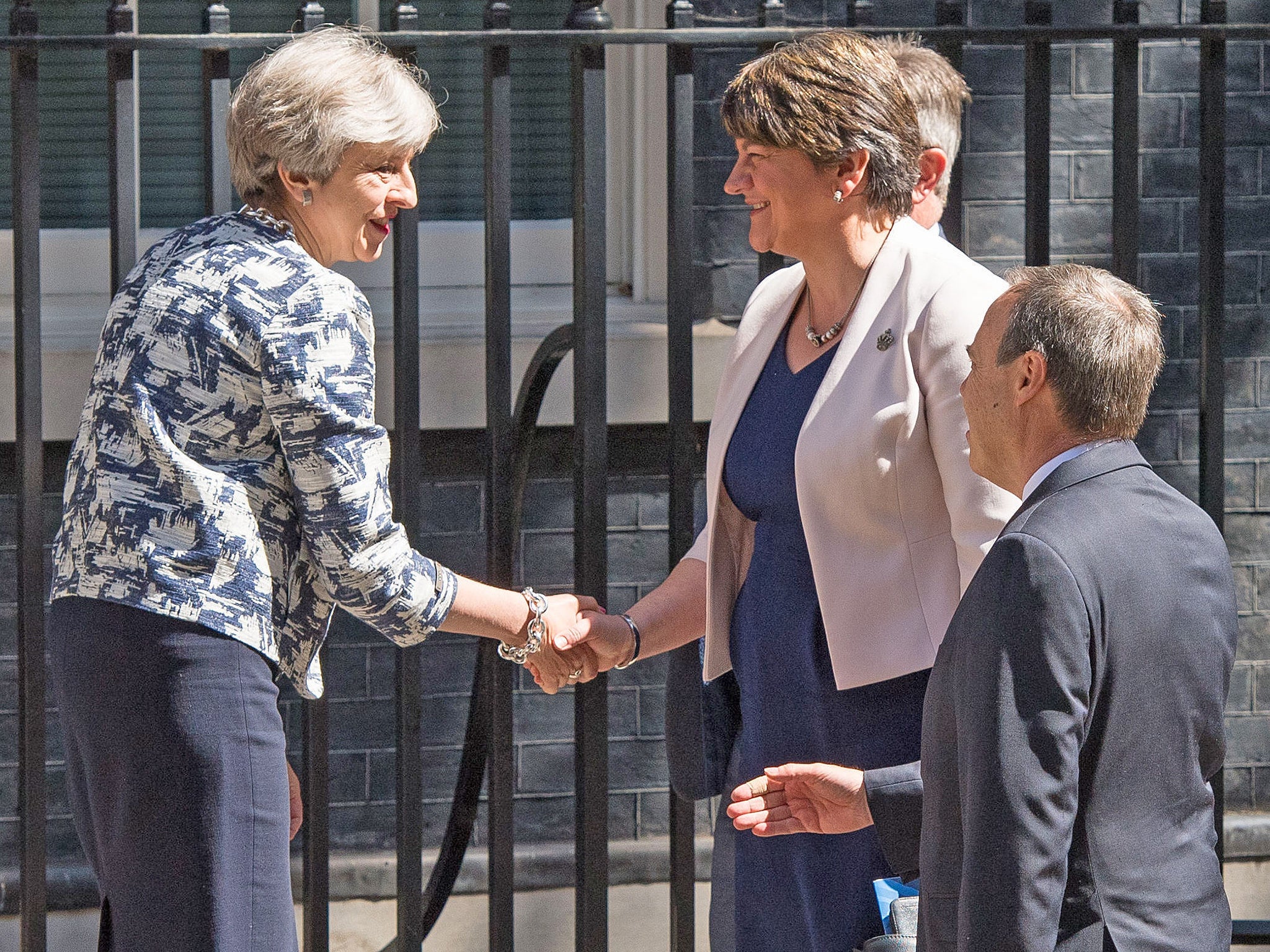There is no national interest in this dishonest DUP deal – we're now all forking out to prop up Theresa May
Stephen Crabb referred to the deal as 'the cost of doing business' – something which usually refers to the paying of bribes in overseas markets, appropriately enough


Your support helps us to tell the story
From reproductive rights to climate change to Big Tech, The Independent is on the ground when the story is developing. Whether it's investigating the financials of Elon Musk's pro-Trump PAC or producing our latest documentary, 'The A Word', which shines a light on the American women fighting for reproductive rights, we know how important it is to parse out the facts from the messaging.
At such a critical moment in US history, we need reporters on the ground. Your donation allows us to keep sending journalists to speak to both sides of the story.
The Independent is trusted by Americans across the entire political spectrum. And unlike many other quality news outlets, we choose not to lock Americans out of our reporting and analysis with paywalls. We believe quality journalism should be available to everyone, paid for by those who can afford it.
Your support makes all the difference.The Prime Minister’s £1bn deal with the Democratic Unionist Party (DUP) of Northern Ireland to buy support for her minority Government brought a reaction from one of her MPs, Stephen Crabb, that inadvertently gave the game away. He said: “We are not used to it in Britain, but actually it's the cost of doing business. We need a Government with a functioning majority.”
Actually, the “cost of doing business” is how companies often describe the paying of bribes to obtain deals in overseas markets. Not that Stephen Crabb would know this. He is a typical member of the Westminster village who has only ever been a political activist.
Theresa May’s arrangement with the DUP certainly feels like a bribe. The dictionary definition describes bribery as dishonestly persuading someone to act in one’s favour by a gift of money or other inducement.
Indeed, the DUP arrangement is dishonest in this sense. It uses public money solely for party interest. The £1bn is to be spent over the next two years on infrastructure, health and education in Northern Ireland. It compels the 97 per cent of the population of the United Kingdom that does not live in Northern Ireland to pay this additional subsidy to the province in return for no advantage at all.
It is a transaction entered into solely for the sake of Theresa May personally, for the Conservative Party and the DUP politically and not for the country as a whole. There is no national interest in it, although the Government’s statement tries to claim otherwise.
This statement starts off by intoning that the deal is in accordance with “our shared objectives for strengthening and enhancing the Union, security, prosperity and an exit from the European Union that benefits all parts of the United Kingdom”. As if Theresa May and the Conservative Party had spent even a moment thinking about these matters in the context of Northern Ireland before their disastrous election campaign.
The document goes on to claim that the agreement “will operate to deliver a stable government in the United Kingdom’s national interest for the duration of this Parliament”. In reality, though, anything but stable. It would only need the Conservatives to lose a small number of seats in by-elections for the deal with the DUP to prove insufficient. And at any point, too, the Conservative Party might decide to change its damaged leader with all the disruption this would entail.
Then again, the extent of the DUP’s support in Parliament is limited. It applies only to motions of confidence, the Queen’s Speech, financial measures, Brexit legislation and security matters. Support on other matters is to be agreed on a case-by-case basis.
Finally, hinting at a difficulty, the agreement states that the DUP will have no involvement in the UK Government’s role in political talks in Northern Ireland. This is a reference to the UK Government’s standing as an honest broker between Catholic and Protestant interests. After the DUP deal, can it continue to fulfil that function?
However, the main disadvantage of this Conservative Party/DUP deal is that it will further lower trust in British institutions. The annual trust barometer survey by PR firm Edelman showed that trust in the British Government, which was already low at 36 per cent at the start of last year, fell to 26 per cent by the start of 2017.
Moreover, some have argued that the Conservative Party could have done without the support of the DUP. The party would tend to support Conservative positions, whether bribed or not. And if Theresa May had marched boldly on, for once we would have had a reason to admire the Conservative leadership – for being undaunted. But it was not to be. Modern Conservatives are not cut from that cloth.
Join our commenting forum
Join thought-provoking conversations, follow other Independent readers and see their replies
Comments